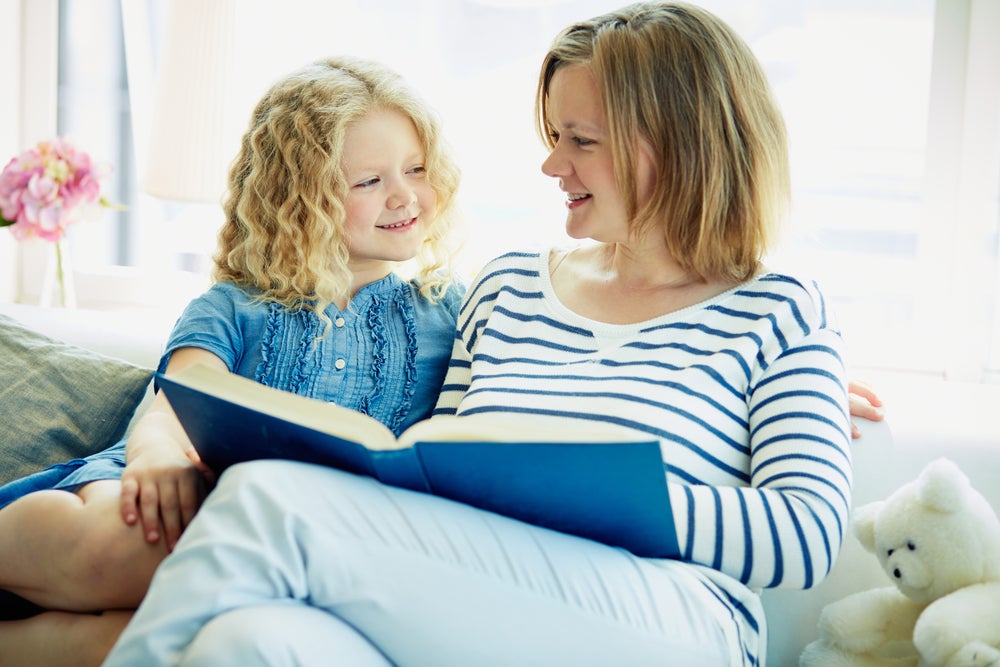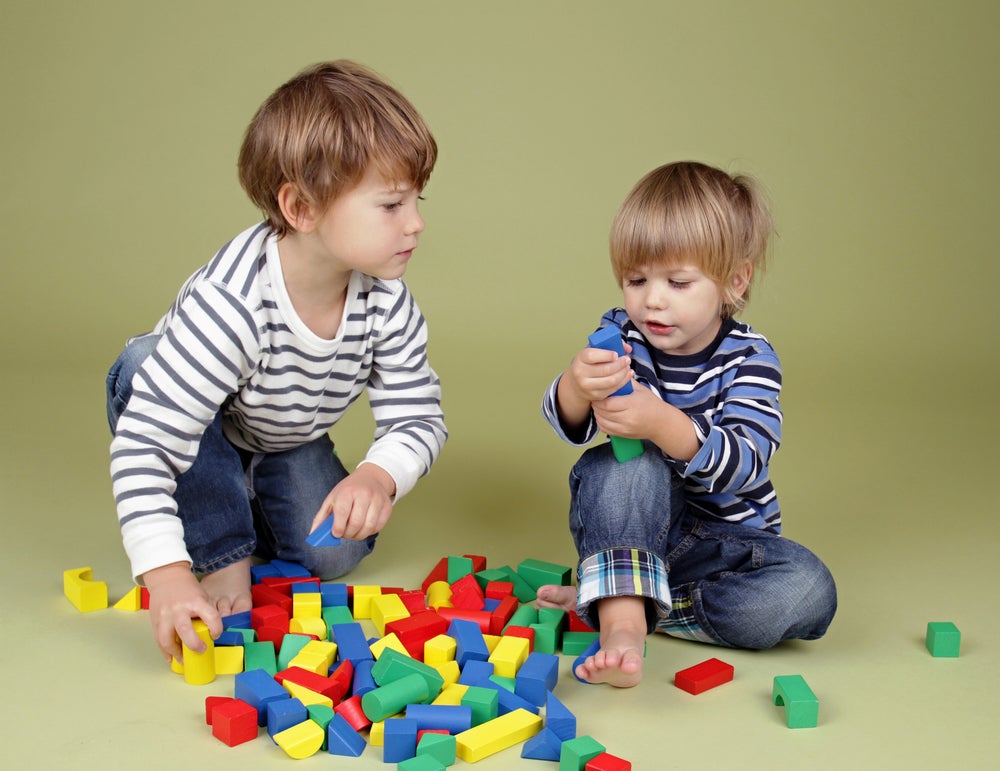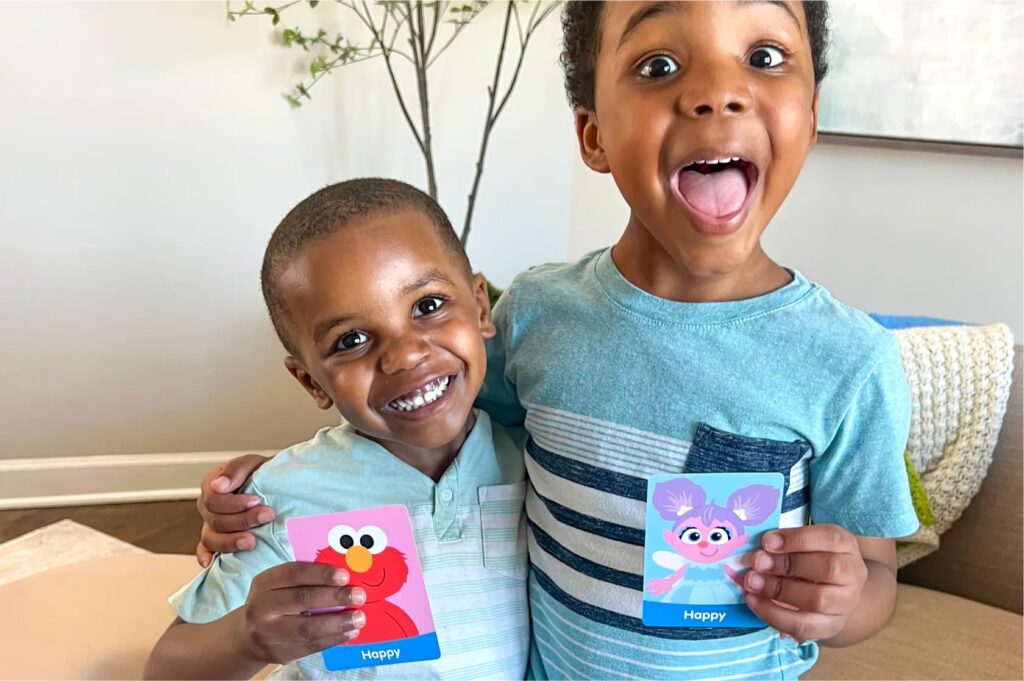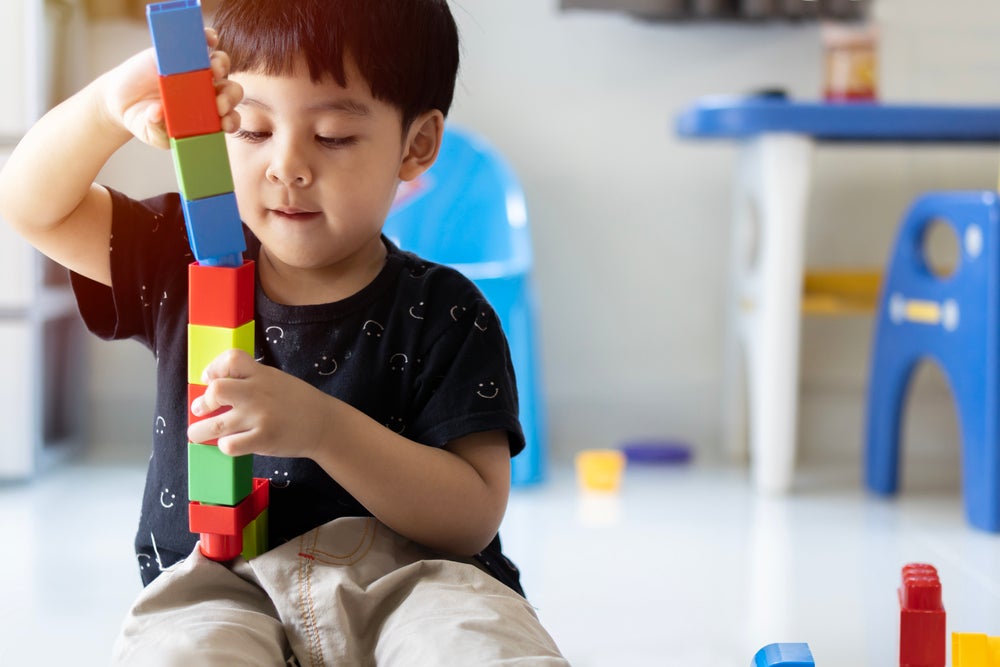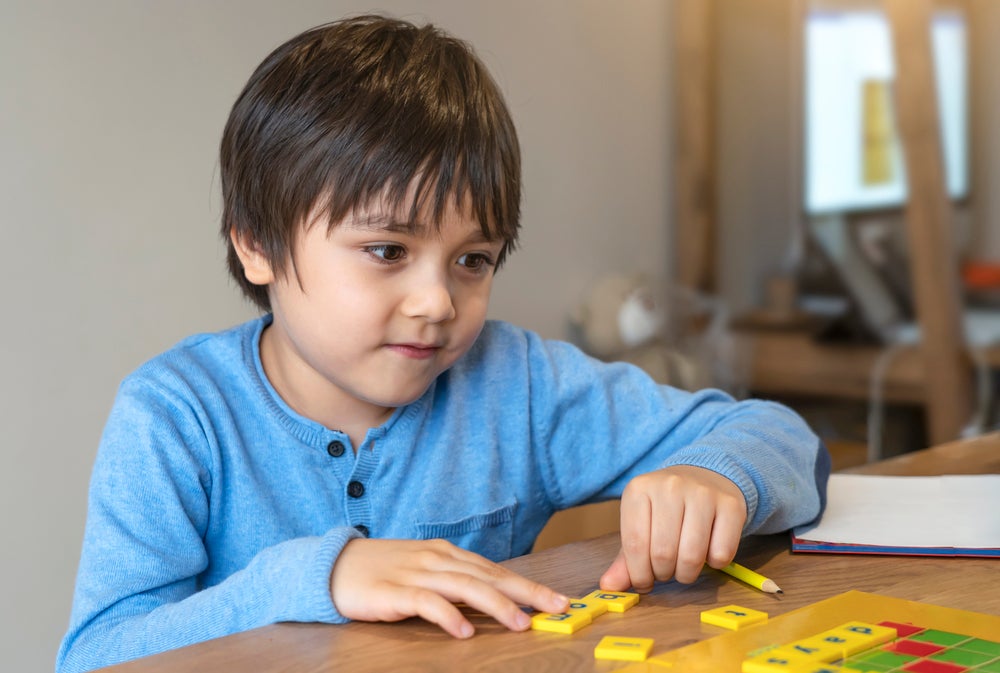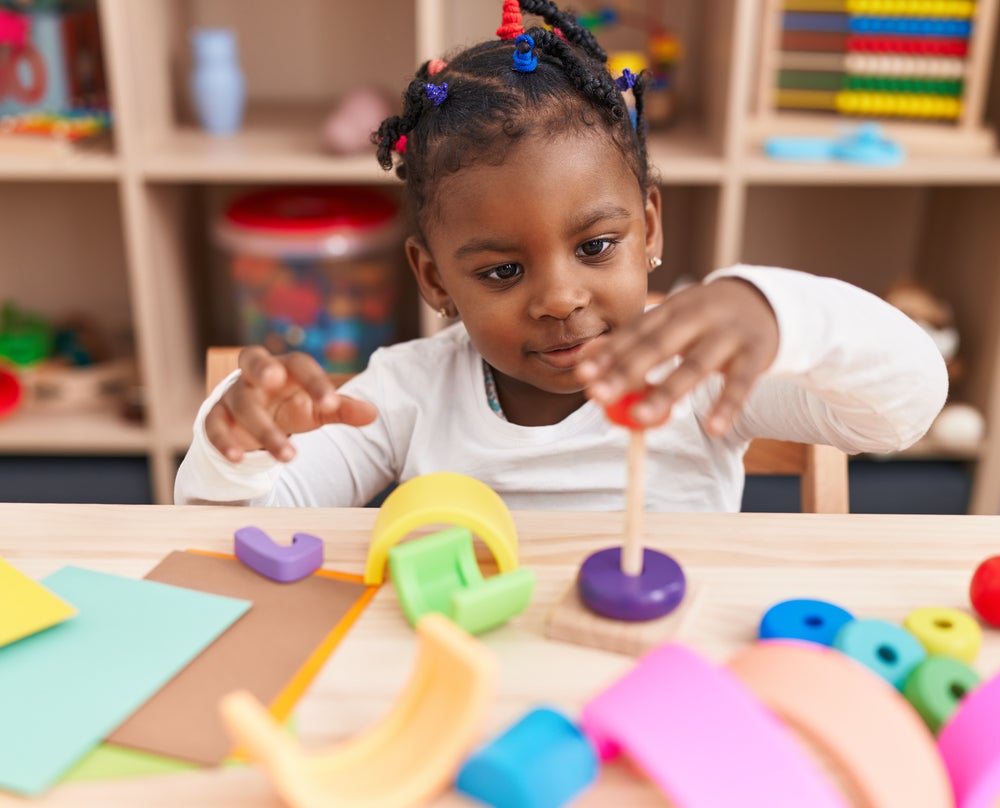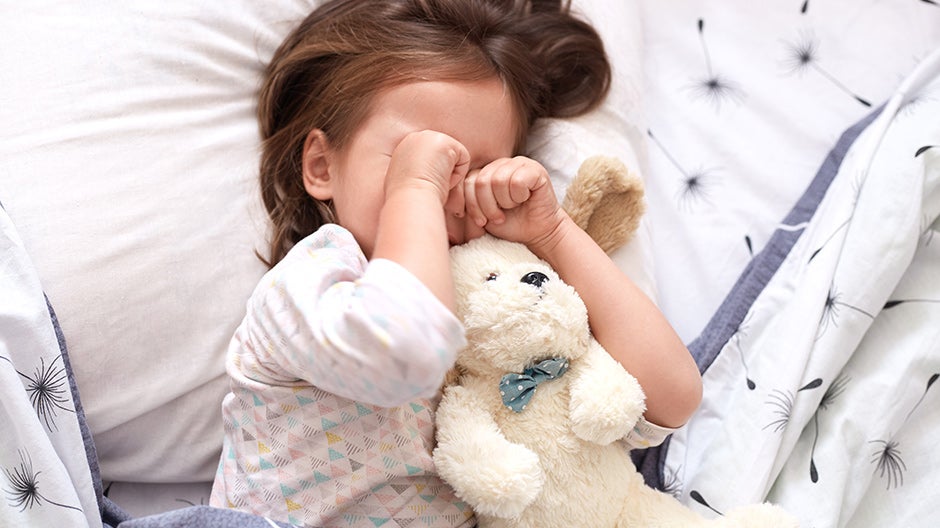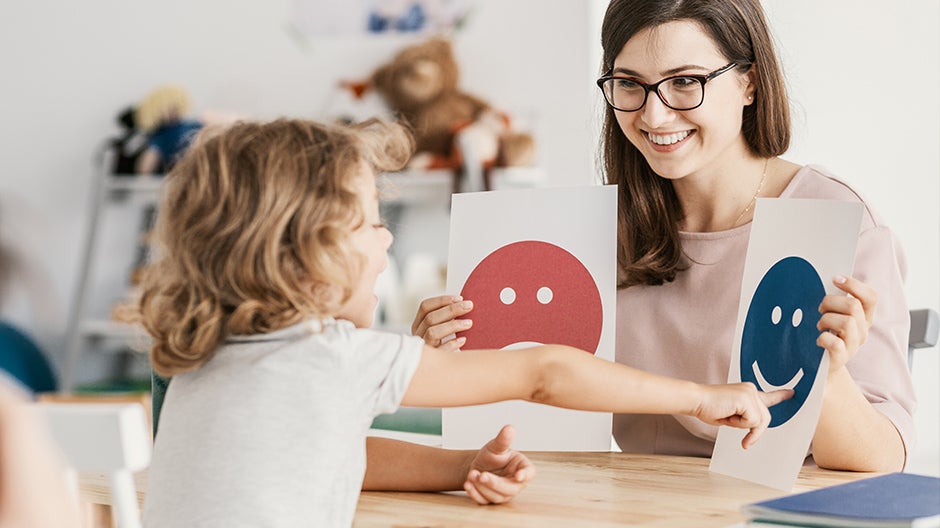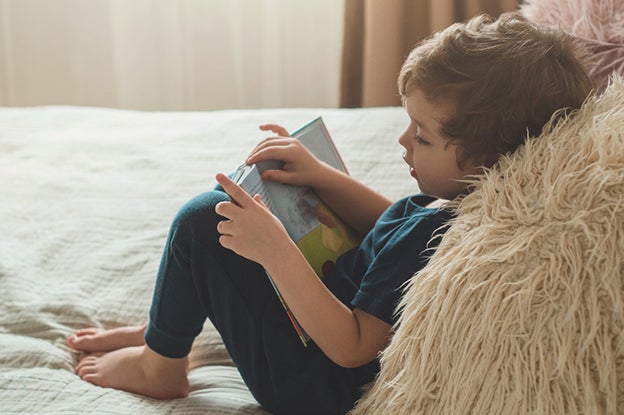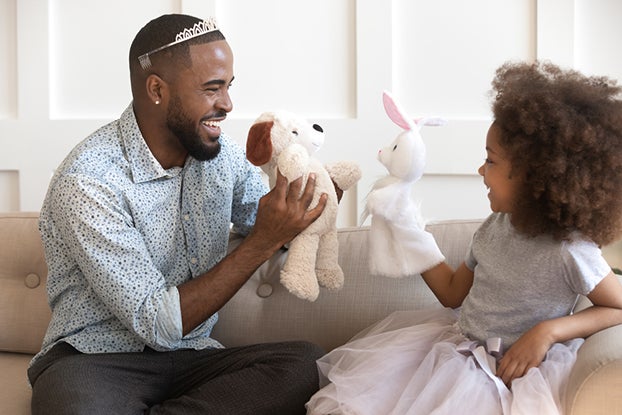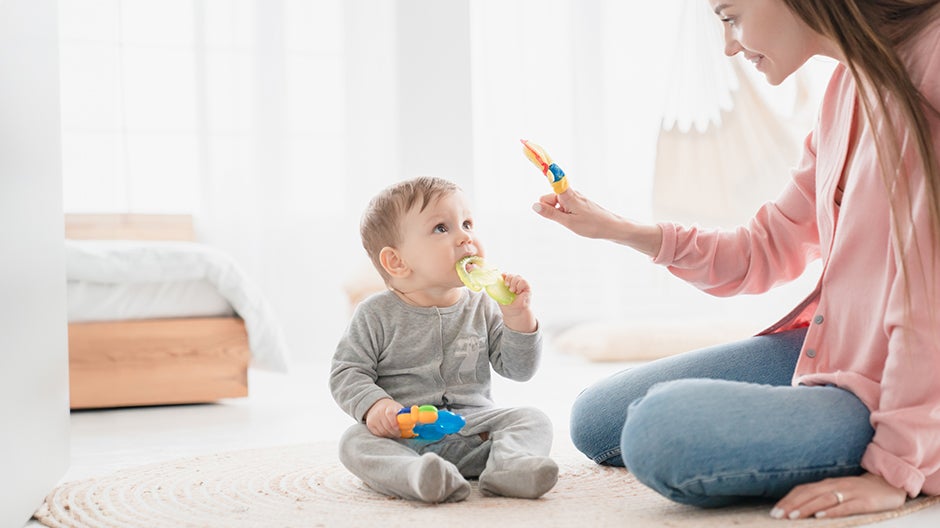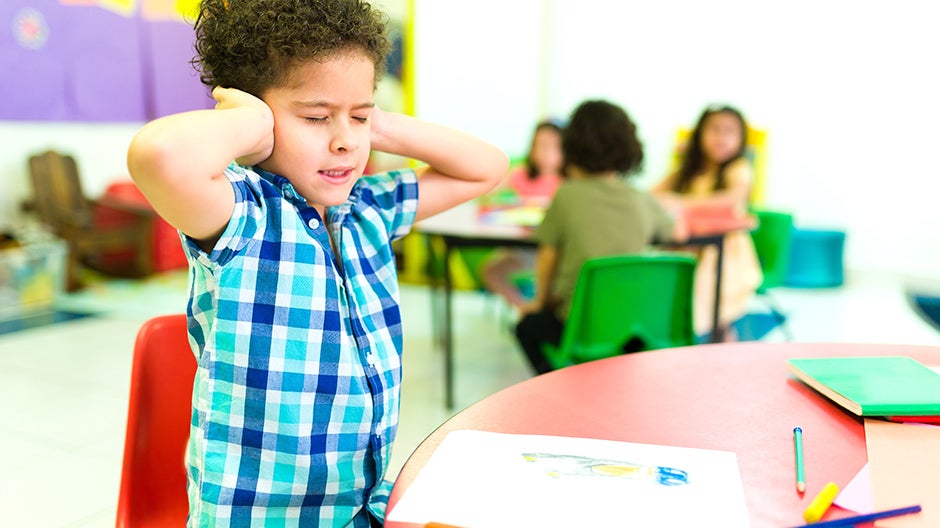Adjectives have enormous power for kids. Whether it’s a 2-year-old learning what “small” means, a 4-year-old sorting the world into things that are “interesting” or not, or a 5-year-old discovering what it means to be “clever,” using adjectives makes a kid’s world richer and more vibrant.
Learning adjectives is also a key part of mastering language, an essential Core Skill at the heart of the Begin Approach to helping kids thrive in school and life. Curious how you as a parent can help? We’ve created lists of common adjectives for kids at different ages, plus adjective lists for colors, emotions, textures, and more to help teach kids a variety of describing words.
And below the lists, check out our guide covering what adjectives are, why they’re important for language development, and teaching adjectives to kids.
The Short Cut
- Adjectives are words that describe people, places, or things—they make sentences more meaningful and express different qualities of an object or person
- Learning adjectives helps kids develop language and literacy, Core Skills essential to their success in school and life
- Most kids begin using adjectives when they’re toddlers and continue to learn them throughout their lives
- Adjectives can be a lot of fun—they’re a great way to play with language, and adjective-specific word games help kids get comfortable with them
Lists of Adjectives for Kids
Color Adjectives
- Bright
- Beaming
- Bold
- Dark
- Radiant
- Colorful
- Glistening
- Glowing
- Radiant
- Vibrant
Number Adjectives
- One
- All
- Many
- Every
- First
- Second
- Third
- Double
- Few
- Each
Shape Adjectives
- Curvy
- Straight
- Circular
- Round
- Triangular
- Flat
- Hollow
- Deep
- Square
- Narrow
Size Adjectives
- Big
- Average
- Buff
- Tall
- Short
- Petite
- Skinny
- Slim
- Fit
- Broad
Emotion Adjectives
- Happy
- Sad
- Exciting
- Grumpy
- Worried
- Scary
- Angry
- Furious
- Upset
- Disappointed
- Content
- Joyful
- Frustrated
- Exhausted
- Cranky
- Jolly
Weather Adjectives
- Sunny
- Cloudy
- Wet
- Dry
- Foggy
- Humid
- Windy
- Clear
- Breezy
- Rainy
Texture Adjectives
- Smooth
- Rough
- Soft
- Furry
- Fuzzy
- Bumpy
- Coarse
- Dry
- Fluffy
- Sticky
- Slippery
- Hairy
- Mushy
What Are Adjectives?
Adjectives add important flavor to our sentences. They help make sentences more meaningful and express the different qualities of an object or person. Without them, our speech would be bland and boring.
In fact, adjectives are so important that children start using them from early in their language development (think “that’s good” and “that’s bad” and “I am sad”) and continue to expand on their understanding of them for years to come.
How Kids Use Adjectives
Ask a kid to describe themselves, and you’ll probably get a list of attributes. Maybe they see themselves as tall, short, funny, smart, or fast. These words are all adjectives.
However, kids don’t just use adjectives to describe people. They also use them to describe animals, objects, and thoughts. In addition, they help kids express what something feels like to taste, touch, or smell.
As they learn more adjectives, kids begin to create vivid images of what they are describing and give distinctions and comparisons. This is beneficial for building vocabulary and helping them clearly express their thoughts and feelings.
When Should Kids Learn about Adjectives?
The adjectives kids use change over the stages of their language development, becoming more complex and nuanced as their brains grow. Here’s a closer look at what you can expect during early childhood.
2- to 3-Year-Olds
When kids reach the toddler stage, their language skills start developing at an incredible rate. Children at this stage understand simple adjectives, like:
- Small
- Big
- Messy
- Soft
- Sticky
- Tiny
4- to 6-Year-Olds
When kids enter preschool and kindergarten, they will continue developing their vocabulary as they interact with peers and teachers and are exposed to more books.
A significant part of their vocabulary will include adjectives. At this stage, children are likely to understand more descriptive words, like:
- Scratchy
- Gentle
- Polite
- Shocking
- Terrified
- Clever
- Damp
- Impossible
- Interesting
It’s important to note that there’s no wrong or right time for children to start learning about adjectives.
Since these words form a part of our everyday vocabulary, as your child starts speaking, they’ll naturally pick up on them and start using them in their own speech. But there are also many fun things you as a parent can do to help them learn more.
How to Practice Adjectives with Kids
Take your time introducing your kids to new adjectives. Sometimes it’s fun to have a word of the day or word of the week that everyone in the family tries to use together.
Simply expanding your child’s vocabulary bank shouldn’t be the goal. While it can be exciting to hear your child using the words they’ve learned, you’ll help them more if you focus on helping them learn that language is fun and not a chore.
Games and activities are a great way to tap into kids’ natural love of play and help them learn. Here are a few you can try at home.
1. Play Adjective Charades
This is a fun activity that gets the whole family involved. Write adjectives on separate pieces of paper and take turns choosing a piece of paper and acting out the word on it.
If you have very young children, remember to use simple adjectives—weak, strong, nice, mean, angry. And for children who haven’t yet learned how to read, you’ll need to read the words for them.
Acting out adjectives is one of the best ways to help your child understand and remember the meaning of the words—and get silly while making fun memories!
2. Describe a Person, Place, or Thing
Since adjectives help us describe a person, place, or thing, why not create an activity centered around this concept?
To get started, make a list of six things you can describe with an adjective. For example, your list could include a person, tree, cat or dog, couch, ice cream, and music. Assign each thing a number from one to six.
Once you have your categories, have everyone take turns rolling a six-sided die. The number of each roll will match a category, and the player who rolled will need to come up with an adjective to describe that person, place, or thing.
For instance, if a kid rolls a four and your fourth category is “couch,” they’ll need to come up with a word to describe a couch (comfy, big, soft, etc.).
As their vocabulary grows, you can make the game aim higher—up to six adjectives for each roll.
To make the game more interesting for older kids, give them 30 seconds to come up with the adjectives. Each word earns them one point, and whoever gets the most points wins the game.
3. Have Fun with Adjectives in Your Speech
Since they’re part of our everyday vocabulary, you can practice adjectives for kids without stopping your day to play a specific game. Just find moments to intentionally use descriptive words in conversation.
For example, instead of saying, “Have some strawberries,” you might say, “Have some juicy, bright-red strawberries.”
Or, instead of saying, “Let’s cuddle under this blanket,” you can say, “Let’s cuddle under this soft, cozy, fluffy blanket.”
This simple activity can help your child significantly improve their vocabulary.
4. Play the Adjective Switch Game
Another fun way to help kids practice adjectives is by playing the adjective switch game.
For this activity, name an animal—a bear, for example—and then use an adjective to describe it. Then ask your child to act out the adjectives.
For example, you could say:
- Hungry bear
- Unhappy bear
- Angry bear
- Silly bear
- Sleepy bear
To make the game even more fun, try going really fast from one adjective to the other as your child tries to keep up—or flip the script and have them call out things for you to act out!
Learning Adjectives with Begin
Without adjectives, it would be difficult to distinguish between a red and green apple or a stormy and sunny day. Learning adjectives helps kids master language, brightening their worlds and helping them succeed in school and everyday life.
At Begin, we make award-winning learning products that give every kid their best start to achieving their fullest potential—and we don’t skimp on the adjectives! Our HOMER app includes engaging stories full of enriching vocabulary that helps kids learn to read. Just 15 minutes a day has been proven to improve early reading scores by 74%!
So as you’re helping your kids discover the wonders of language, remember that we’re here to help, whether it’s with more parent resources like this one or learning products that make a real difference for your family.
